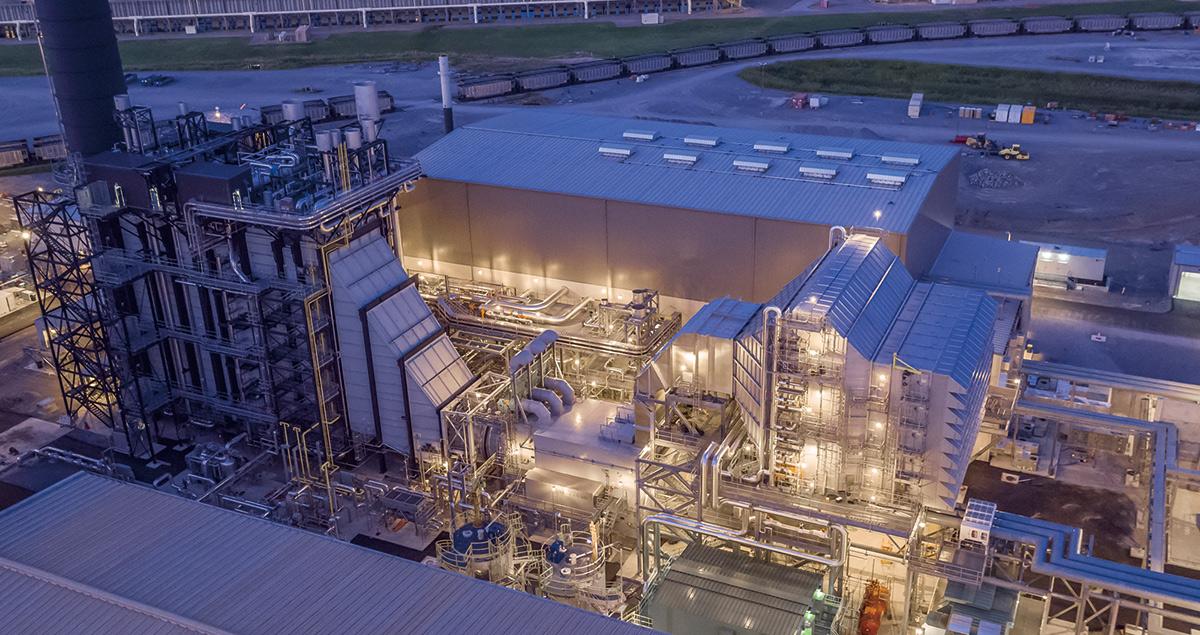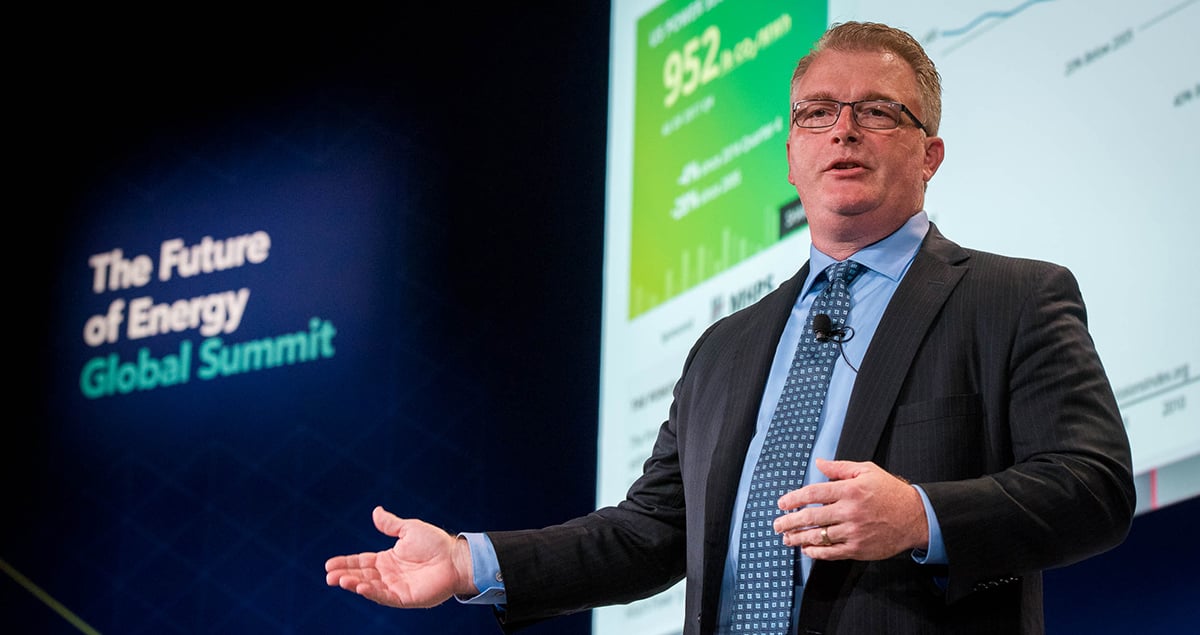This is how AI is changing energy

Humans build power plants. And for years, we’ve watched over them, keeping operations running and acting when things go wrong.
But in the age of artificial intelligence, we’ve seen the arrival of something capable of processing vast amounts of data to boost efficiency, predict problems and optimize operations – the algorithm.
And the potential of AI and machine learning now stretches far beyond power generation. These technologies are transforming all aspects of the energy industry, from organizing maintenance schedules to how energy is traded and distributed.
Data flow
In today’s digitalized energy industry, sensors are king. They collect billions of pieces of information on all aspects of a plant’s operations - a wave of data that would drown the most diligent human operator. But merely collecting data is one thing. Using it to enhance efficiency is another – and that’s where machine learning comes in.
AI-enabled machines can monitor and optimize every aspect of a power plant’s operation. The processing capacity of algorithms uses the wealth of available information to monitor performance and make incremental improvements to generate more electricity with less fuel. Plants using AI can also predict problems before they arise and calculate the best time to make repairs to cut operating downtime.
“We are using more and more AI and machine learning to detect and resolve issues in our customers’ power plants much earlier than previously possible.”Paul BrowningPresident & CEO
MHPS Americas
Once power plants are connected to each other, they can communicate with the power grid and other energy infrastructure, opening-up a world of new possibilities.
Get connected
A connected network has assisted the rise of renewable energy sources like wind or solar power. The free flow of data and machine learning are crucial in overcoming the problem of intermittency, where weather conditions allow too little or too much power to be generated.
Machines can monitor these conditions and optimize renewables so that supply meets demand, automatically diverting excess power into energy markets when generating conditions are strong, and supplementing energy supply when there is too little sun or wind. As well as helping renewables deliver greener, cheaper energy, machine learning has facilitated the development of power plants that can take care of themselves.
Mitsubishi Hitachi Power Systems (MHPS), a part of Mitsubishi Heavy Industries Group, has began developing plans for the world’s first autonomous power plant: a 600MW facility in Japan, boasting 65% fuel efficiency when operational. Speaking at a session called Digital Transformation & the Future of Power at the annual energy conference CERAWeek in Texas, US, Paul Browning, President & CEO of MHPS Americas, explained how machine learning and AI had facilitated that.
“We are building the world’s first autonomous power plant, capable of self-healing. We want to use technology to eliminate downtime and unplanned shutdowns of power plants.”Paul BrowningPresident & CEO
MHPS Americas
The game-changing plant uses a digital platform called MHPS-TOMONI, a Japanese word meaning ‘together with’ and a reference to the spirit of cooperation between the company and its customers. The facility harvests data from sensors around the plant and other resources, using machine learning to forecast local weather, calculate forward energy prices and decide when to conduct maintenance, among many other functions.
Driven by real-time data, the technology decides when to reduce supply or increase generation in response to a demand spike. The futuristic plant aims to become capable of self-healing, learning to fix minor malfunctions, such as autonomously unsticking valves that have become stuck.
Browning said: “Over time, as plants become more intelligent, we will see more of these things being automated, with huge benefits for our customers.”
The technology MHPS-TOMONI uses is already helping MHPS engineers work with power plant operators to improve overall plant efficiency, flexibility and operations. Furthermore, increased efficiency throughout the supply chain, from generation to consumption, is reducing the amount of energy we need to generate.

The human touch
But energy supply is only one side of the story – AI is also impacting the way energy is consumed.
Self-learning algorithms can turn people’s homes into power generators, with the installation of smart-meters that learn how much energy is used by devices in the home. Real-time data shows which appliances are in use, how much they are costing to operate and how much energy they have consumed in the past, which helps power companies predict future energy requirements.
AI also takes the guesswork out of harmonizing supply and demand. Houses fitted with solar panels can calculate their daily energy needs, with the help of an AI-enabled smart meter and sell any excess energy back to the grid.
These technologies are continuously transforming the energy landscape, creating new opportunities for the industry.
Ganesh Bell, the President of industrial AI and IoT software company Uptake, points to the fact that only about 1% of data currently harvested by companies is used. “The biggest breakthrough that has happened in the last decade is the democratization of data science,” he told the CERAWeek panel. Once computers learn to utilize the remaining 99%, the opportunities could be endless.
With algorithms increasingly determining when and how best to generate and supply energy, some fear that machines could replace humans altogether. But not according to Browning. “We’re not getting rid of people,” he told the audience in Texas. “We’re getting rid of unplanned downtime.”
People, of course, will still have an important role to play in the future energy story. The vast streams of information that AI-enabled machines collate and process empower human operators to make better decisions. It’s a partnership that is revolutionizing the energy industry.
TOMONI, a suite of digital solutions powered by AI, is transforming power plants into big-data powerhouses. Discover how.




